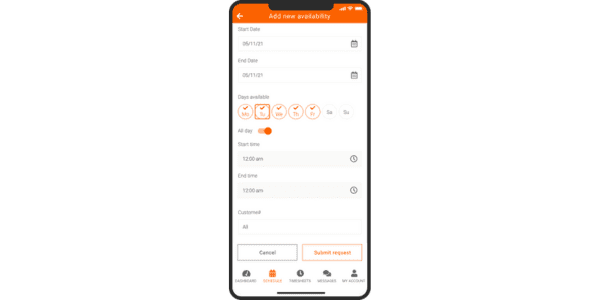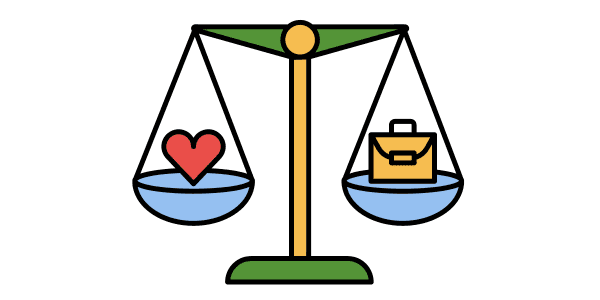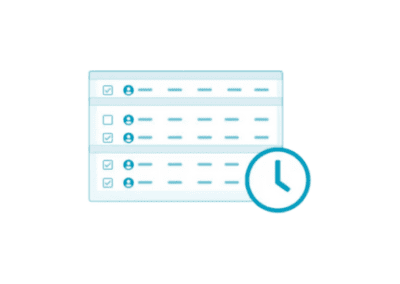In 2019, the first graduating class of Generation Z entered the workforce. Over the next ten years, Boomers will retire, Millennials will enter senior management roles, and Gen Z will make up one-third of the workforce. Managing different generations in the workplace has always presented unique challenges and opportunities.
With the emergence of Gen Z, employers and managers must adapt their leadership styles to effectively engage and motivate this new generation. They bring distinct characteristics, values, and expectations that set them apart from their predecessors. In this blog, we will define what exactly Gen Z is and explore what you need to know about managing them, providing insights and strategies for successful leadership.
Who is Generation Z?

Gen Z refers to the demographic cohort born between the mid-1990s and early 2010s. They are the successors of the Millennial generation and represent the youngest members of the workforce and society. Gen Z individuals have grown up in a world deeply influenced by advanced technology, social media, and globalization. They are often described as digital natives, as technology has been an integral part of their lives from a young age. They characterized by their adaptability, multiculturalism, and strong desire for authenticity, diversity, and social change. With their unique perspectives and values, Gen Z is reshaping the workplace and challenging traditional norms, prompting organizations to adapt their strategies to effectively engage and manage this dynamic generation.
How to Manage Gen Z Successfully
Understand Characteristics
Gen Z is the first truly digital-native generation, having grown up in an era of advanced technology and constant connectivity. They are adept at multitasking, highly adaptable to change, and possess a strong desire for work-life balance. Recognizing and appreciating these traits can help you create an environment where Gen Z employees can thrive.
Technology

Gen Z individuals are intimately familiar with technology and expect it to be an integral part of their work environment. Ensure your organization provides the necessary tools and resources to maximize their productivity. Embrace digital communication channels, collaborative platforms, and remote work options, as these will resonate with Gen Z’s preference for flexibility and efficiency.
Autonomy and Creativity
Gen Z employees are independent and value the opportunity to make an impact. Provide them with autonomy and ownership over their work whenever possible. Allow them to contribute their ideas, experiment with new approaches, and collaborate across teams. They thrive in environments that encourage creativity and innovation.
Diversity + Inclusion
Gen Z values diversity and inclusion more than any previous generation. They appreciate workplaces that celebrate individuality, promote equality, and prioritize social justice. By creating a diverse and inclusive work environment, you can attract and retain top Gen Z talent. Emphasize equal opportunities, fair policies, and diverse representation at all levels of your organization.
Growth Opportunities
Gen Z employees are ambitious and crave personal and professional growth. They seek continuous learning, mentorship, and clear career progression pathways. Implement training programs, mentorship initiatives, and provide regular feedback and recognition to fuel their development. Encourage a growth mindset and demonstrate a commitment to their advancement within the company.
Communication
Effective communication is crucial when managing Gen Z. They prefer concise, direct, and instant communication. Leverage various communication channels such as instant messaging apps, video conferencing, and social media platforms to keep them engaged and informed. Regularly provide feedback, clarify expectations, and offer constructive criticism in a respectful manner.
Work-Life Balance

Gen Z values work-life balance and prioritizes personal well-being. Encourage a healthy work culture by promoting flexible work hours, remote work options, and mental health support. Be mindful of their boundaries and respect their personal time. By fostering a work environment that respects work-life integration, you can increase their loyalty and productivity.
Purpose-Driven Work
Gen Z seeks meaningful work that aligns with their values and makes a positive impact on society. Clearly communicate your organization’s purpose and social responsibility initiatives. Engage these employees by involving them in projects that contribute to a greater cause. When they see the purpose behind their work, they are likely to be more motivated and engaged.
Final Thoughts…
Managing Gen Z requires understanding their unique characteristics, leveraging technology, fostering diversity and inclusion, providing growth opportunities, encouraging autonomy and creativity, and maintaining effective communication. By adapting your management style to meet the needs of this generation, you can build a thriving workforce and ensure your organization remains competitive in the evolving job market. Embrace the strengths and aspirations of Gen Z, and together, you can achieve success.




